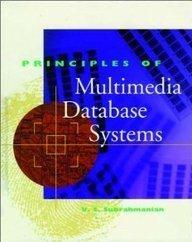Question
Stacks are often used to provide undo support in applications like a Web browser or text editor. While support for undo can be implemented with
Stacks are often used to provide undo support in applications like a Web browser or text editor. While support for undo can be implemented with an unbounded stack, many applications provide only limited support for such an undo history, with a fixed-capacity stack. When push is invoked with the stack at full capacity, rather than throwing an exception, a more typical semantic is to accept the pushed element at the top while leaking the oldest element from the bottom of the stack to make room. Give an implementation of such a LeakyStack abstraction, using an array. Input Format: Read input from a file in2.txt. The first line contains T number of test cases. The first line of each test case is the capacity of the LeakyStack. Second line contains the consecutive operation strings in the browser. Output Format: Write output in console. Print the content of the stack.
Input:
1
3
op_one op_two op_three op_four op_five
Output:
op_five op_four op_three
Here is my code. what's wrong with it
import java.io.BufferedReader;
import java.io.FileReader;
import java.io.IOException;
public class LeakyStack {
public static void main(String[] arg) throws IOException{
String currentLine;
BufferedReader br= new BufferedReader(new FileReader("C:\\Users\\chenxing he\\Desktop\\in2.txt"));
int caseNum=0;
int capacity=0;
int index=0;
String[] temp;
while((currentLine=br.readLine())!=null){
if(index==0){
caseNum=Integer.valueOf(currentLine);
}else if(index%2==1){
capacity=Integer.valueOf(currentLine);
}else{
temp=currentLine.split(" ");
System.out.println("case: "+ Integer.toString(caseNum));
outputOperation(temp,capacity);
}
index++;
}
}
public static void outputOperation(String[] a, int capacity){
StackOfArray output=new StackOfArray(capacity);
int n=0;while(n if(n output.push(a[n++]); }else{ StackOfArray output1=new StackOfArray(capacity); output1.push(output.pop()); output1.pop(); output.push(output1.pop()); output.push(a[n]); } } for(int i=0;i output.push(a[i]); } while(!output.isEmpty()){ System.out.println(output.pop()+" "); } } }
Step by Step Solution
There are 3 Steps involved in it
Step: 1

Get Instant Access to Expert-Tailored Solutions
See step-by-step solutions with expert insights and AI powered tools for academic success
Step: 2

Step: 3

Ace Your Homework with AI
Get the answers you need in no time with our AI-driven, step-by-step assistance
Get Started


